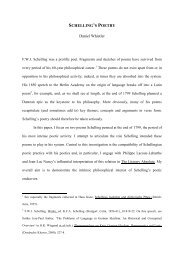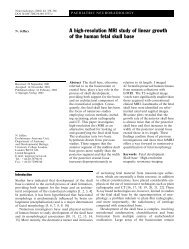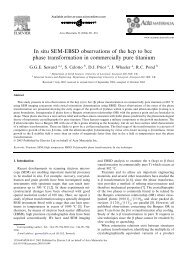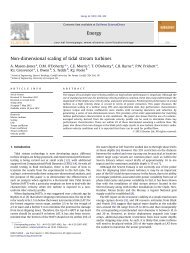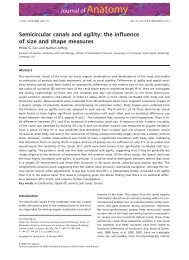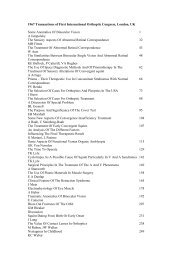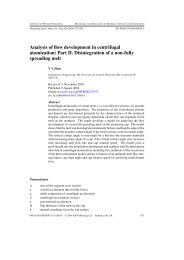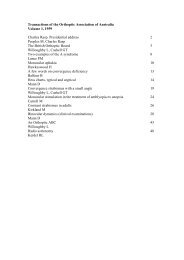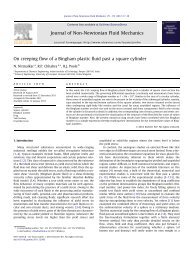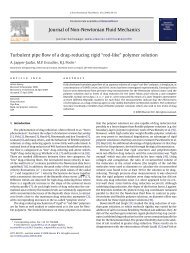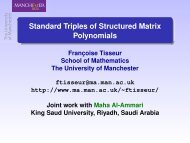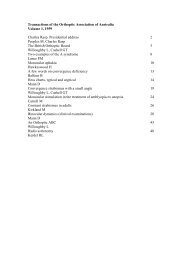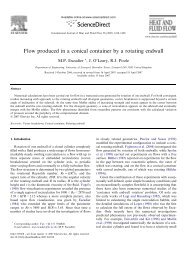The Discipline of Pious Reason: Goethe, Herder, Kant Daniel ...
The Discipline of Pious Reason: Goethe, Herder, Kant Daniel ...
The Discipline of Pious Reason: Goethe, Herder, Kant Daniel ...
Create successful ePaper yourself
Turn your PDF publications into a flip-book with our unique Google optimized e-Paper software.
<strong>The</strong> crux <strong>of</strong> <strong>Herder</strong>’s disagreement is contained in the following claim,<br />
<strong>The</strong> more spiritual the pleasure, the more it endures and the more its object also<br />
endures outside <strong>of</strong> us… [the more] an object exists and continues to exist outside<br />
<strong>of</strong> us and can only really become one with us metaphorically, that is, hardly or not<br />
at all. (1994, 4:409; 1993, p. 113)<br />
Hemsterhuis asserted that desire for union (and so the possibility <strong>of</strong> union) increased<br />
the more spiritual the desire became; <strong>Herder</strong> here—under the pretext <strong>of</strong> summarising<br />
Hemsterhuis’ thought—gives a diametrically opposed analysis. <strong>The</strong> more spiritual a<br />
desire, the less explaining it by means <strong>of</strong> fusion makes sense, for such fusion is, in<br />
fact, less possible here. Moreover, in a complete disregard for Hemsterhuis’ actual<br />
position, <strong>Herder</strong> suggests this is a good thing: pious desire for union is not something<br />
to be positively valued, but is rather merely the model for ‘crude’ desires. Desire for<br />
union is a ‘brief, deceptive illusion’ (ibid, 4:416; p. 116). Spiritual desires are to be<br />
valued more highly precisely because they obey a very different model and are not<br />
determined by the figure <strong>of</strong> the One.<br />
<strong>The</strong> reason for this is the self-destructiveness <strong>of</strong> neoplatonic piety. As Aristophanes<br />
already noted in the Symposium, when one unites with the object, all pleasure is at an<br />
end, for the subject/object relation is annulled. <strong>The</strong> same problem holds for<br />
Hemsterhuis who follows the Symposium closely: desire for the One destroys desire.<br />
‘It is impossible for man to flow together with everything like mud’—and stay man,<br />
<strong>Herder</strong> writes (ibid, 4:422; p. 119). Hence, <strong>Herder</strong> argues that spiritual pleasures are



